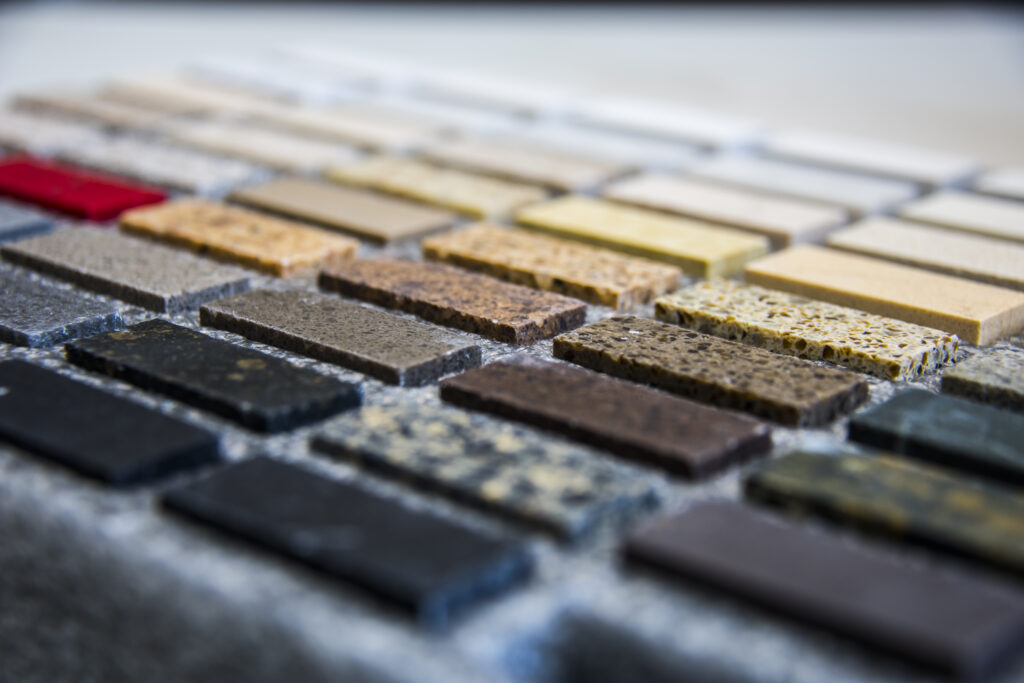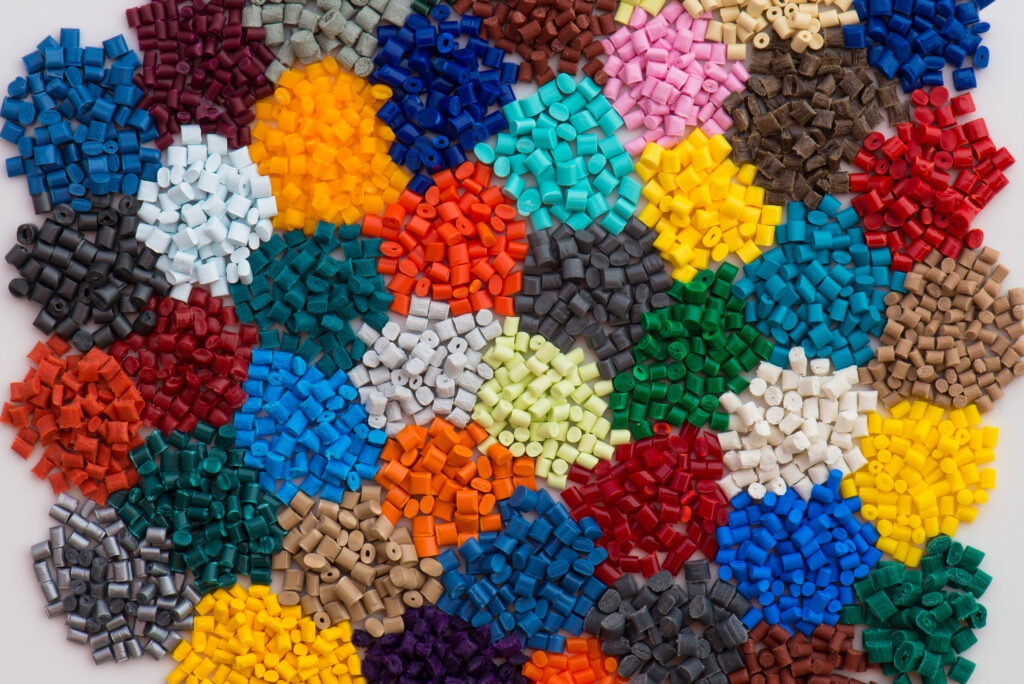The Resin Countertops Guide: Pros and Cons to Epoxy Countertop – 2021
Resin countertops are more durable than plastic laminate kitchen countertops and more affordable than natural stone countertops. And, epoxy resin creates a solid surface with many of the beneficial features you expect from natural stone countertops, like granite and quartzite. And, stone resin surfaces are manufactured to custom lengths for a seamless custom fit in your kitchen or bathroom.
Learn everything you need to know about the pros and cons of epoxy resin countertops for your kitchen or bathroom. Find out how the manufacturing process works to produce a non-porous and highly durable countertop that fits your custom dimensional needs. And, see how resin measures up to its natural stone counterparts.
What are Epoxy Resin Countertops? Everything You Need to Know
Resin countertops offer a beautiful, durable, and affordable alternative to traditional stone countertops, like granite, marble, or quartz. Stone resin cures from polyester, epoxy, acrylic, or other synthetics to form a water-proof and heat-resistant solid surface of manufactured stone. Each countertop is custom manufactured to size and offers near-infinite colors from which to choose.

Unlike natural stone or laminate countertops, the surface is made to size for each kitchen or space. Since the manufacturing process begins in liquid form, it is easy to customize the color with dye. And, the finished product takes on the aesthetic of natural stone due to the inclusion of quartz or marble dust in the resin.
What is Resin Stone and How is it Made?

Stone resin goes by many names, like solid surface, manufactured stone, epoxy resin – and others. It comprises natural stone dust from quartz or marble, epoxy, acrylic resin, bauxite, and pigments or dyes to add color. Stone resin looks like natural stone but can be manufactured to form any shape, like bathtubs, basins, and other unusual shapes.
Solid Surface Countertops: Pros and Cons
Many factors are at play when choosing the best type of material for your kitchen countertops, and one of them is your budget. One of the best attributes of solid surface countertops is that they offer many of the same benefits as natural stone, for a more affordable price. On the other hand, natural stone is often considered the superior surface material for countertops.
What are the Benefits of Choosing Resin Countertops?
As mentioned above, the price of solid surface countertops is superior to that of natural stone. But, the other major benefit is the equivalency in the attributes of stone resin. Like granite countertops, the resin is resistant to water, features heat-resistant characteristics, and is extremely durable.
Manufactured stone resin surfaces were first implemented in laboratory settings, because of their resistance to scratches, dents, and impact damage. The resin surface, unlike other surfaces, is not altered in appearance by exposure to ultraviolet rays, and the non-porous surface is ideal for easy sanitizing and disinfecting.
It is no wonder that stone resin made its way to restaurant kitchens, and eventually private homes. Stone resin is great for kitchens, because the surface withstands damage from stains and natural agitates, like grape juice, lemon juice, or bleach. And the non-porous surface of the stone resin is resistant to bacteria and fungus that hide in tiny crevices of natural stone.
What are the Drawbacks to Choosing Stone Resin?
Stone resin countertops are manufactured products, and the quality and aesthetic of different manufacturers can widely vary. At the end of the day, natural stone offers an earthy beauty and consistent characteristics no matter where it comes from. But, natural stone countertops must be maintained with more regularity than stone resin.
Natural stone is more elegant, whereas stone resin offers a more functional alternative. But, the final decision is based on which material fits your project and satisfies your aesthetic desires. Talk to a Myers Countertops associate for more information on resin countertops vs natural stone countertops for your kitchen or bathroom.